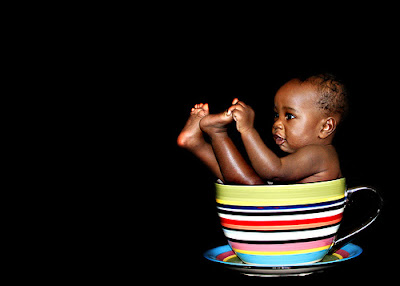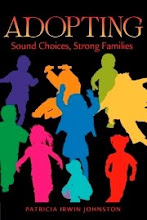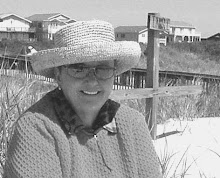
American couples have a litany of reasons for adopting from abroad, ranging from the belief that they will be able to bring home a healthy, young infant to being able to set aside their fears of a birthparent knocking on their door to reclaim her child. In pursuit of their dream, they are willing to put up with enormous fees and expenses, monumental paperwork tasks akin to a thesis project, and the uncertainty of it all. From where I sit, families seeking an international adoption appear to be caught up in the “thrill of the hunt” for their child.
And now, as family-building options slow or close in large sending countries---China, Russia and Guatemala---some American agencies and parents are turning to Africa as the new frontier in international adoption. Angelina and Madonna have paved the way, after all, and seem to have no regrets.
But what if these same eager adopters were told there are hundreds of healthy newborns that private adoption agencies are struggling to find homes for right here in the United States? Furthermore, that these babies are available within a few weeks of being born? Would a line quickly form to bring these infants home?
There is a line, actually, and it is a short one. In increasing numbers, American agencies are "exporting" black babies for adoption by couples and singles in Canada, Germany, France, Belgium, England and the Netherlands. Most are healthy black and biracial newborns. Most of the adopting parents are Caucasian, just like the ones in this country queuing up to adopt from Africa.
The US is now the fourth largest "supplier" of babies for adoption to Canada. The exact numbers placed overseas are not available, but estimates run to around 500 such adoptions a year. Statistical reporting requirements that are part of the Hague Treaty should provide clearer data now that the U.S. has implemented it here.
The notion of "supply and demand" among human beings is a discomfiting one, but it is a reality. Every day we make decisions that affect our honesty and our integrity. Think about it. You don’t have to go to Africa. The lines are short. Look homeward, angel.
http://www.cbsnews.com/sections/i_video/main500251.shtml?id=673611n Click here to view an interview with Lesley Stahl of CBS News on the topic.
 Two weeks ago I attended a national conference in
Two weeks ago I attended a national conference in 




